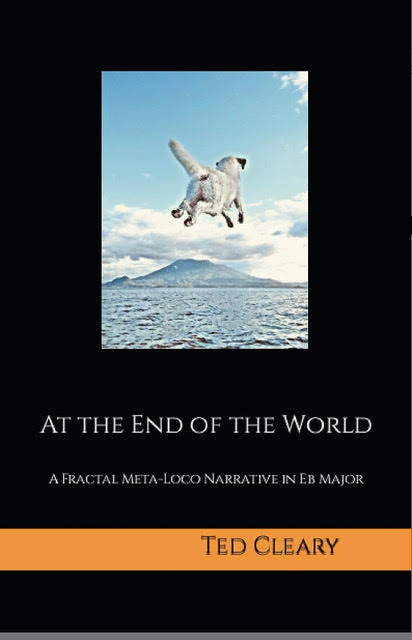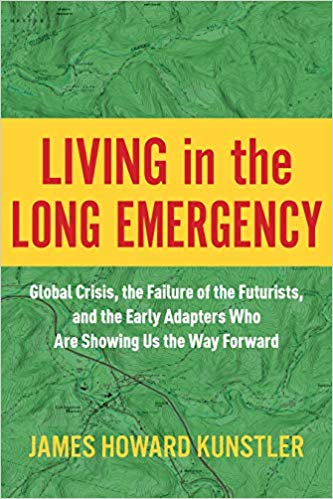Support this blog by visiting Jim’s Patreon Page
And thanks to all my Patrons for your support
# 381— Becca Dickens and Jarrod Yantis are owners of Regenerative Life Farm, located near Lake Shelbyville in rural, central Illinois. Their outfit is on 19 acres including a half-acre no-till, deep compost market garden and the rest is used for rotational grazing of 300 chickens and cattle. Their motto is “Regenerating ourselves, our soil and our community”. They sell eggs and vegetables at farmer’s markets and provide education on gardening and Food as Medicine. They believe farmsteading in this way offers them the best hope for a happy life and humanity the best hope for a future. They can be found at: https://www.regenerativelifefarm.com.
The KunstlerCast theme music is the beautiful Two Rivers Waltz written and performed by Larry Unger.
Direct Download: KunstlerCast381 — Farmsteading in the Heartland with Becca and Jarrod
Please send questions and comments to jhkunstler@mac.com
This podcast is sponsored by Vaulted, an online mobile web app for investing in allocated and deliverable physical gold. Vaulted is backed by McAlvany Financial Group, which owns ICA, one of the largest and longest continuously operating full-service gold brokerage firms in the United States.
To learn more visit: Kunstler.com/vaulted





 JHK’s Three-Act Play
JHK’s Three-Act Play







This was a refreshing interview. I lived in central IL for 5 years during the mid-1970s. We always had a backyard garden in the “land of tall corn”. Good topsoil and a generally favorable climate for growing stuff. I wish Becca and Jarrod all the best on their endeavors and wish them good health…they’ll need it.
God bless you guys.
Good luck to both. This was a pleasant interview.
Here in the NEK, we live on a steep slope, are still terracing for more planting areas. Compost is expensive and on our scale we just make what we need. We cut local fields by hand with our scythes – it makes great mulch and we also compost much. We just built a box baler to load in cut hay by hand to make bales. We also have a small tractor for dragging logs out of the woods, for moving the mulch from fields to gardens, snow blowing the garden. We too pasture the chickens with a small chicken tractor. We electrified the entire garden and goat area. We will fence more with wire, barbed wire, and a strand of electric fence. We have small pigs planned for the future. They will be moved around also with electric fence. A good rooster is an important asset. And as Jim says, a good role model. We don’t grow for market, just for ourselves and for trade and barter. We are also remote, surrounded in this state by many virtue signaling types and of course tourists. I like the idea of getting the local folks to actively start growing and producing their food locally. My neighbor across the street, states that it is too much work especially when it is so easy to go to the grocery store. My usual response is, I like to know where my food comes from, to have food security in terms of food and food safety. I think such comments go over the heads of many. We are what we eat. I loved Becca’s comment… we just dressed up and played office at work… I can relate to that as I too worked in the corporate environment, where I learned that big checks get written to the EPA and magically chemical x is removed from a regulatory list. If it isn’t on a list and you release it into the environment, then voila, you didn’t pollute.
Another interesting podcast! Thanks for this.
Hey Jim, I’m a subscriber but now for a couple of weeks I’m not getting email notification of your Clusterfuck post or podcast.
“They believe farmsteading in this way offers them the best hope for a happy life and humanity the best hope for a future”. Obviously. But I begin to think of “humanity” and the availability of 19 acres of land in a relatively benign climate with water and not-horrible soil. The numbers just don’t add up for “humanity”. At least not at current numbers. Maybe this is what Schwab and Co. are aiming at?
I went and did some googling on the Midwest (Illinois, Indiana, Iowa, Michigan, Minnesota, Missouri, Ohio, Wisconsin). I’m going to round these numbers to make it a bit easier. Total population of the Midwest is a little over 62 million. Total acres 328 million. “Tillable” acres 127 million.
Instead of using the total population number we should use households instead. Let’s say the average household is 3 people so there are 20 million households in the Midwest. Not everyone would be or want to be a farmer. Only 2% of Americans are farmers now, if we got that number to 25% in the Midwest, that would be 5 million households on 127 million acres of “tillable” land. That works out to be 25 acres per household.
This is some very rough figuring, but I think there is room for everyone. Humanity always has hope!
Very enjoyable interview. I’m in Southeastern IL about 2 1/2 hrs away. Wife and I will definitely visit. There is nothing like this very close by. We are in the middle of chem-laden row crop country.